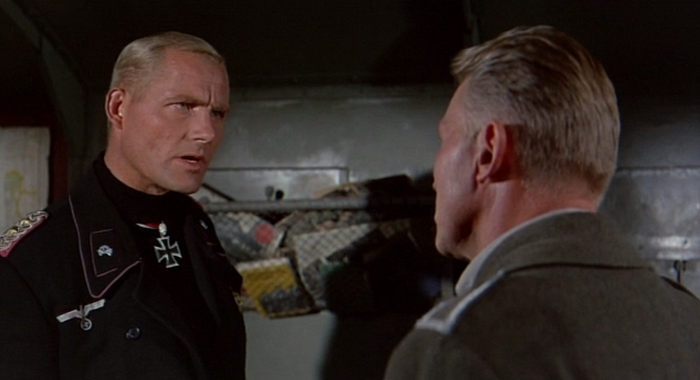The Endless War
America has spent nearly $5 trillion on wars since 9/11
— New York magazine, 14 Sep 2017
Many people remember the account from George Orwell’s 1984 which describes an endless war between Oceania and the two other world powers, a war which motivates and provides the justification for everything in that police state.
Yesterday I watched one of my favorite films, The Battle of the Bulge, a big-budget Hollywood mid-60s film set during World War II. Like many of the WWII films of that era, it contrasts the sometimes disorganized and ill-disciplined American forces with the disciplined, brutal Nazis. Of course, the sloppy, improvisational Americans wind up winning.
The thing that makes this film stand out is a dialogue, over two scenes, between the dashing German tank commander (played by Robert Shaw) and his aide-de-camp Conrad (Hans Christian Blech). Though this contrast between the Nazi and the “good German,” whom Americans had to believe in to understand the post-war era when Germany had become an ally, is also standard, their dialogue illustrates an unusual level of insight into the mentality of those who believe in war and strength as a motiviating factor for a society.

PANZER COLONEL:
Our column has made the farthest advance. We have outrun the other panzers. The eyes of Germany are on us. The Führer himself will decorate me. We have done it, Conrad. We have done it.
AIDE:
We have won the war!
COLONEL:
No.
AIDE:
You mean we have lost?
COLONEL:
No.
AIDE:
I don’t understand. If we have not won and we have not lost… then what’s happening?
COLONEL:
The best thing possible is happening. The war will go on.
AIDE:
For how long?
COLONEL:
Indefinitely. On and on and on.
AIDE:
But it must come to an end.
COLONEL:
You’re a fool, Conrad. Those of us who understood knew, in 1941, we could never win.
AIDE:
You mean, colonel, for three years, we have been fighting… without any hope of victory?
COLONEL:
There are many kinds of victory. For the German army to survive, for us to remain in uniform — that is our victory. Conrad, the world is not going to get rid of us after all.
AIDE:
But when do we go home?
COLONEL:
This [battlefield] is our home.
AIDE:
And my sons? When do I see them? What will become of them?
COLONEL:
They will become German soldiers, and you will be proud of them.
…
AIDE:
I would like to be transferred to other duties, sir.
COLONEL:
For combat duty? … Very admirable, but why?
AIDE:
It’s the right of every German soldier to ask permission for a transfer to other duties.
COLONEL:
It is the right of every commanding officer to know the reason for the transfer, and I want the truth.
AIDE:
The truth… is that I’m a fool. I believed in you. But all you believe in is the war. You have the war. You like the war. And all I have are my sons, and I don’t want to lose them.
COLONEL:
I’m not responsible for your children.
AIDE:
You are. You’d make them soldiers…. They will die.
COLONEL:
If necessary.
AIDE:
Necessary for who? For you?
COLONEL:
You are not only a fool, you are a traitor.
AIDE:
And you are a murderer. You would murder my sons. You would murder my country. You would murder the whole world to stay in that uniform.
(The script for The Battle of the Bulge is by Philip Yordan, Milton Sperling, and John Melson.)
